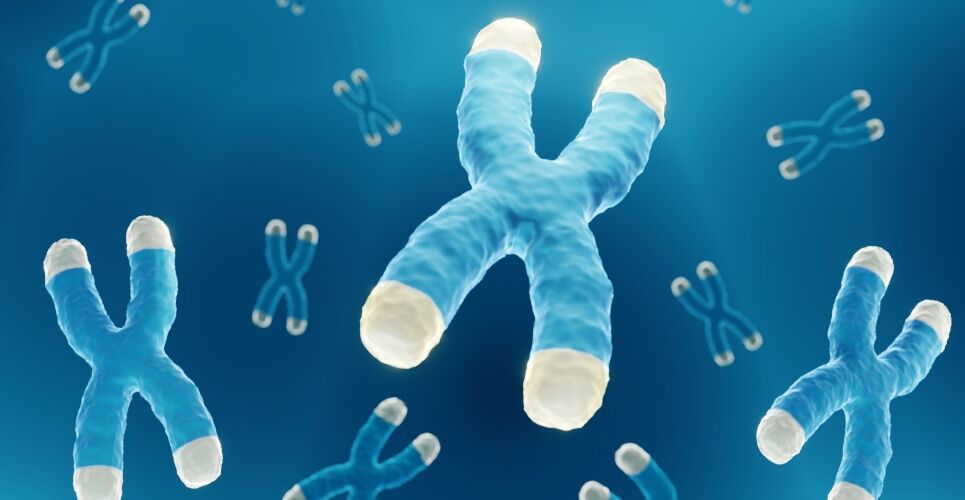UK researchers have identified a gene linked to heart defects in Down syndrome (DS), offering a potential therapeutic target for DS-associated congenital heart defects (CHD).
DS, caused by trisomy of human chromosome 21 (Hsa21), resulted in multiple conditions including learning and memory deficits, craniofacial alterations, and CHD, researchers wrote in the journal Science Translational Medicine.
With DS affecting around one in 800 births, it was the most common genetic cause of CHD with around 50% of babies with DS presenting with cardiac defects at birth, the Francis Crick Institute and UCL Institute of Neurology researchers explained.
The most severe defects, such as those affecting the atrioventricular septum, often required surgery in the first years after birth, resulting in substantial morbidity and mortality, they said.
‘This clinically important cardiac pathology is the result of a third copy of one or more of approximately 230 genes on Hsa21, but the identity of the causative dosage-sensitive genes and hence mechanisms underlying this cardiac pathology remain unclear,’ they wrote.
Studying human DS foetal hearts as well as embryonic hearts from a mouse model of DS, they showed they were affected by reduced expression of mitochondrial respiration genes and cell proliferation genes.
Using genetic mapping, they identified one gene on Hsa21 – dual-specificity tyrosine phosphorylation–regulated kinase 1A (Dyrk1a) – which, when present in three copies, was linked with congenital heart disease pathology.
They were also able to show in embryonic hearts from the mouse model of DS, that reducing Dyrk1a gene copy number from three to two reversed defects in cellular proliferation and mitochondrial respiration in cardiomyocytes and rescued heart septation defects.
‘The work presented here shows that mitochondrial dysfunction and reduced cell proliferation correlate with CHDs and that all three of these depend on a third copy of Dyrk1a,’ they wrote.
However, they noted the results did not prove that these cellular changes caused septation defects.
They also noted there was a second unidentified gene at play, with three copies of Dyrk1a necessary, but not sufficient, to cause CHDs.
Eva Lana-Elola, principal laboratory research scientist at the Francis Crick Institute, and study co-first author, said it was remarkable that restoring the copy number of Dyrk1a from three to two reversed the heart defects in the mouse model for DS.
‘We’re now aiming to understand which of the other genes on this extra chromosome are involved,’ she said.
The researchers noted that the Dyrk1a gene encodes for the Dyrk1a protein, and they also tested whether inhibiting this protein’s activity in pregnant mice could reverse CHD changes in the DS mouse model embryos.
For the study, they used the Dyrk1a inhibitor leucettinib-21 at a stage when the mouse pups’ hearts were forming, and they were able to show a partial reversal in genetic changes.
Victor Tybulewicz, group leader of the Immune Cell Biology Laboratory & Down Syndrome Laboratory at the Francis Crick Institute, said the research suggested inhibiting Dyrk1a might be a useful therapeutic approach.
‘However, in humans the heart forms in the first eight weeks of pregnancy, likely before a baby could be screened for Down syndrome, so this would be too early for treatment,’ he commented.
‘The hope is that a Dyrk1a inhibitor could have an effect on the heart later in pregnancy, or even better after birth.’
The researchers worked with Perha Pharmaceuticals to test the Dyrk1a inhibitor, which is also being trialled for cognitive disorders associated with DS and Alzheimer’s disease.
Rifdat Aoidi, postdoctoral project research scientist at the Francis Crick Institute, and study co-first author, said: ‘We don’t yet know why the changes in cell division and mitochondria mean the heart can’t correctly form chambers.
‘Dysfunction in the mitochondria has also been linked to cognitive impairment in Down syndrome, so boosting mitochondrial function could be another promising avenue for therapy.’

